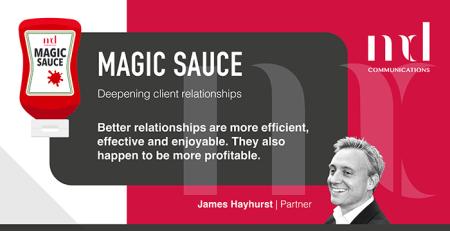Our Head of Legal Directories, Bids and Awards, Linsay Leslie, looks at how law firms can build and maintain more successful and long-term panel relationships.
How often have you put your heart and soul into winning a coveted panel appointment with a key client, only to realise months, or even years later that the return on investment hasn’t turned out to be quite what you had anticipated? It’s a common story among law firms that often doesn’t have a clear or easy path to resolution.
Prevention is better than cure, so building in high-level but regular audits of all your panel relationships can help to avoid any surprises. However, there are three other key themes or behaviours worth exploring that can help law firms create a roadmap towards building and maintaining more successful panel relationships for the long-term.
Be proactive to create a compelling RFP response
Proactively gather client intelligence all year round, not just close to panel renewal time; and embed behaviours and processes that clients typically include questions about, and/or request evidence of, in a panel RFP. This will provide you with rich and meaningful content for your response such as examples of lessons learned, success stories and case studies. If KPIs are already in place and you’re seeing room for improvement, take the initiative on conversations around whether your approach or legal team is meeting expectations and readjust accordingly. Showing that any feedback has been addressed is a powerful way of demonstrating your ability to listen.
If not explicitly asked about, look for opportunities to weave into your panel RFP responses, the insight and experiences you’ve gained as a result of your commitment to the relationship pre-RFP. Examples that can be particularly persuasive include feedback acted upon and resulting performance improvements; quantifiable value added services; tangible savings on time or money through use of technology and innovation; or collaborating on social impact projects.
Be consistent in efforts to strengthen the client relationship
Have regular relationship meetings and more informal touch points, even in the absence of live matters –it’s well reported that clients value a personal service beyond the legal advice. Ensure certain items always have a place on the agenda which will position you front and centre when it’s time for a panel refresh. Topics for discussion might include business strategy and sector developments;team reorganisations; legal and non-legal business challenges; and projects in the pipeline due for tender that you could position yourself for in advance.
When responding to a panel RFP, consider including a 100-day plan to demonstrate that you understand the importance of establishing clear processes and communication channels. In a 2019 White Paper by the University of Cambridge’s Judge Business School (commissioned by LexisNexis) on client service in law firms and how to improve it, law firms with clear engagement processes, well-defined mechanisms for problem resolution and successful role mapping between senior team members, stood a significantly higher chance of empanelment and retention.
Be collaborative in creating efficiencies and finding solutions
Work with your business development and relationship management teams on creating knowledge banks for panel clients where you can keep records of feedback received, value add offerings, D&I collaborations, pricing models, use of innovation and technology etc, so that you can hit the ground running when an RFP lands. This type of information is typical in panel RFPs but can be notoriously difficult to track down and a drain on valuable time and resource when up against a tight deadline.
Invest in mapping client journeys to identify roadblocks and pain points. Collaborate with your panel clients to ‘redesign’ their experience and record outcomes in a client ‘manual’ that can be shared with other practice teams as appropriate; ultimately sowing the seeds for firm-wide best practice. If resource allows, assign a dedicated client relationship manager to drive these projects forward and ensure they are available for input on RFPs.
Demonstrate your willingness to collaborate with other panel law firms. It’s important to acknowledge that from the client’s perspective, the optimal advisory team may involve a number of different law firms and other advisers acting on different elements of the same matter. Likewise, in the provision of training and know-how services, having different firms manage different modules according to their strengths, may result in a product which is better designed to meet client needs.
If you’d like our bids and tenders brochure, please request a copy.
More information about our bids and tenders services.












